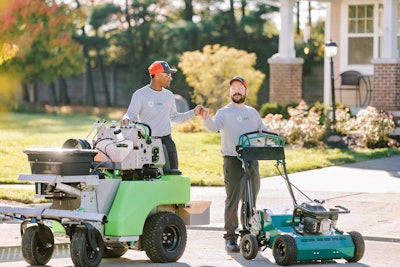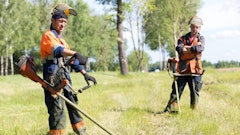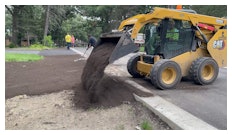
As the demand for well-maintained commercial and residential lawns continues to grow nationwide, so does the need for skilled lawn care professionals. A recent study by the Better Business Bureau projects 10% employment growth in the lawn and landscape industry over the next five years, meaning there should be ample job opportunities available for those interested in joining the field. In order to excel in the industry, many lawn care companies find investing in comprehensive training and extensive support systems beneficial. By prioritizing employee development, these companies can empower their teams to deliver the highest-quality services to their customers.
Whether you’re a new technician, a seasoned veteran or the owner of a lawn care company, proper onboarding and continuous support are invaluable regardless of your experience level. Lawn care companies, both commercial and residential, often specialize in specific sectors, which means both business owners and employees may need to complete many training programs and obtain various certifications to meet customer needs.
It's also no secret the lawn care industry has evolved for the last decade. Making a meaningful difference in communities and offering topnotch services requires an extensive skillset. Nowadays, services extend beyond standard mowing and landscaping to include lawn fertilization, weed control, aeration, seeding and insect control. Mastering these skills, in addition to the lawn care basics, requires comprehensive training. The most effective training is typically conducted in-person with other new hires in classroom-style sessions and ongoing support is provided there on out so team members will continue adapting to new developments and training procedures.
Safely training for operating lawn care equipment is also critical. While some properties must still be walked due to gates and terrain, many customers now have their lawns treated with advanced ride-on and motorized equipment. As the industry continues to introduce new and modernized equipment, developing a safety-focused training program to properly teach equipment handling and storage is integral. All tiers of staff should be professionally trained and knowledgeable about equipment safety to prevent errors or mechanical issues that could lead to liability problems. The safer the work environment, the better tasks can be performed, which is ultimately a win for both customers and lawn care providers.
Training also goes beyond basic equipment use and day-to-day operations. Technology plays a major role as well. The ability to adapt to technology, which continues to expand within the industry, is imperative for both new professionals in the field as well as seasoned technicians who may be used to relying on dated methods of service. Utilizing advanced software, sales programs and customer databases all require training and experience as well. Mastering these programs takes time, hands-on experience and ongoing support as new technicians learn and experienced technicians adapt. Naturally, many of these technicians have questions, have been recently introduced to the industry or utilized different software at a previous gig. That’s why the technological side of training requires just as much attention as perfecting customers’ lawn does. Tech integrations are designed to streamline operations, optimize scheduling, and enhance customer interactions, making it vital for employees to receive the necessary training. Technology isn’t always an accessory; it can be at the core of your business’ success, helping you maximize revenue and operate efficiently.
Understanding how to market your lawn care company to the territories you serve is also important. The ability to understand current trends, develop insights from data and adapt them to your business model is key during onboarding, especially if operating under a lawn care franchisor. From digital marketing to traditional advertising methods, entrepreneurs need to be equipped with the right resources to scale their business effectively. Marketing can also play a pivotal role in shaping how customers in your territory view your brand and services. For example, some companies strategically promote themselves as green businesses to attract eco-friendly customers due to the increasing demand for eco-friendly lawn care. Mastering marketing skills benefits lower-level staff and technicians who can assist with local marketing efforts too.
Overall, being part of the lawn care industry requires more than an interest in the field. Technicians must undergo weeks of training sessions, in-person tests, earn certifications and have a strong support system to navigate clients’ needs. The industry is constantly evolving, updating safety protocols and introducing new technology and software to streamline operations and maximize profits. Currently valued at $59 billion, the industry is growing and shows no signs of slowing down. To stay ahead of the competition and carve out a lane to success, lawn care companies large or small, franchised or independent must prioritize quality training and support systems. Doing so will help customers receive the best service possible, allowing the industry to continue thriving and attract new technicians.




















